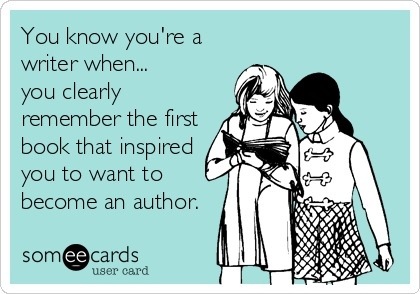
Right now I’m reading Carol Goodman’s The Seduction of Water. It’s made me think about what it really means to be a writer. I have always loved books & the way in which an author can transport you to another time or place, can make you understand & empathize with a character wholly unfamiliar to you. I credit my mother, also an avid reader, and my grandmother, a librarian, with my love of reading.
The first book that made me want to be a writer was Rebecca, by Daphne de Maurier. It was an assigned summer reading book in middle school & I was immediately enthralled by the language, the characters, the suspense. I was in awe. After Rebecca, I thought ‘I want to do this, I want to create stories like this.’
In his Advice for Writers Nicholas Sparks says “you must read, and read a lot.” I was once told that you should always read with a pen in your hand. I tend to read with a pen & notepad so I can jot down my thoughts or ideas without being limited to the margins of a book. Plus, I just can’t bring myself to write in most books. I know that notes, markings, and dog-eared pages are the sign of a loved book, but I just can’t do it.
Stephen King’s On Writing & Kate Chopin’s The Awakening are two books I own that are full of highlights & notes. I also own both in paperback & eBook, but my struggle between the need to posses physical books & my desire to access them anytime is another story for another day.
Another great piece of advice from Mr. Sparks is to read in all genres. If you can’t tell from my Book Challenge list or Goodreads profile, this is something I strive to do. Within the last month I’ve read historical fiction, young adult/fantasy, and mystery. My stories & ideas tend towards realistic fiction/mystery, but I’ve found that you can pick up useful techniques in any genre so I will give almost any novel a shot.

